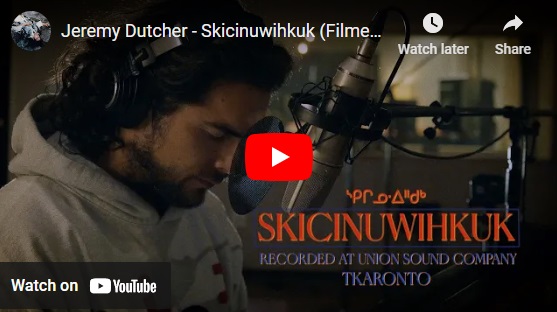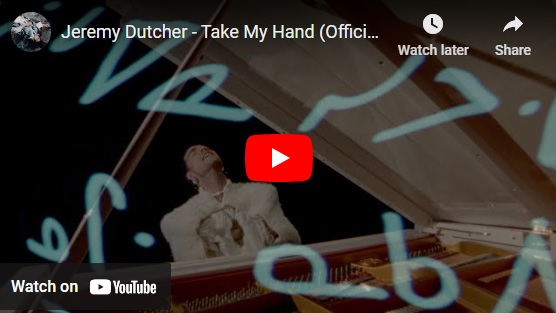After making a triumphant debut in 2018 with his JUNO- and Polaris Music Prize-winning album Wolastoqiyik Lintuwakonawa, Jeremy Dutcher has expanded his artistic vision on his keenly-awaited second full-length, Motewolonuwok (released Oct. 6, 2023).
“The record is on a much higher production level than the first record,” he says, just prior to appearing at a roots music festival in Denmark. “That one was so DIY. We were recording in people’s living rooms, and the strings were recorded in a classroom at McGill University. I used a string quartet of friends then, but for this one [co-producer] Owen Pallett made it a full orchestra. We had a couple of voices on the debut, and here it’s a full choir. We turned everything up a dial on Motewolonuwok.”
The core of the new record remains the classically-trained Dutcher’s fluent grand piano playing and rich tenor voice, and it also showcases his evolution as a songwriter. For Wolastoqiyik Lintuwakonawa, he crafted compositions based on archival recordings of traditional Maliseet songs and sung in his native Wolastoqey language. On Motewolonuwok, Dutcher includes original compositions, and sings in English for the first time.
“My world is one between English and Wolastoqey. On any album, you’re inviting people into your world and how you see it. Mine is bilingual, and I wanted to make a record like that. For my first record it was important for me that it was all not in English. It was pointing to my community, saying, ‘This is for you, my people,’” says Dutcher. “It then had this life outside, and won all these awards, and I realized people were hungry for knowledge about us. The switch to English now was about directly communicating with the people that had gathered around the work, that I didn’t expect. Now that they’ve gathered, let’s tell them what’s what!”
The material on Motewolonuwok came together in hybrid fashion. “Some of the ones sung in Wolastoqey are traditional songs I’ve arranged with the band, while some of the English numbers are taken from Indigenous poetry by Qwo-Li Driskill that touched me, and others are straight from my heart,” Dutcher explains.
“Now that they’ve gathered, let’s tell them what’s what!”
As a proud Two-Spirit song carrier, activist, and member of Neqotkuk (Tobique First Nation), Dutcher has never been shy about expressing himself on the subject of the relationship between Canada’s Indigenous peoples and settler culture. This focus is a strong component of Motewolonuwok, as exemplified by Dutcher’s powerful original compositions, “The Land That Held Them” and “Ancestors Too Young.”
“I just sat and wrote them in a free, stream-of-consciousness way, based on my own experience as a young Indigenous person, and this situation in which we find ourselves,” he says. “‘The Land That Held Them’ is a history lesson as much as a song. Each verse is a different vignette from the news. The first verse is Tina Fontaine, the second Colten Boushie, and the third is the starlight tours, referencing when the police in the prairies would pick up intoxicated Indigenous people in the streets and drive them out of town [and abandon them], sometimes in the middle of fuckin’ winter! It’s unacceptable that we live in a country that would do that.”
One new song with a fascinating back story is the lyrical ballad “Take My Hand,” a co-write with Basia Bulat. “That song is special, and came from a collaborative process over several years,” says Dutcher. “The original melody came from an elder, Maggie Paul, who was influential on my first record. It was only one verse, and she sang it for me in English, telling me, ‘Go sing the song for the people – young people are forgetting how to love each other.’ I didn’t consider myself a lyricist, so I sat on the song for a while.
“Then, on a songwriting session with Basia, I played it for her. She said, ‘Let me work on this a bit,’ and later she sent me a video of her singing the song, and seven verses of handwritten lyrics, for me to use however I wanted. To me, the song has such a beautiful message: ‘Take my hand and walk with me.’ Let’s have a discussion and walk together. I think this is the turning point, where we are walking together. Now we can talk!”

